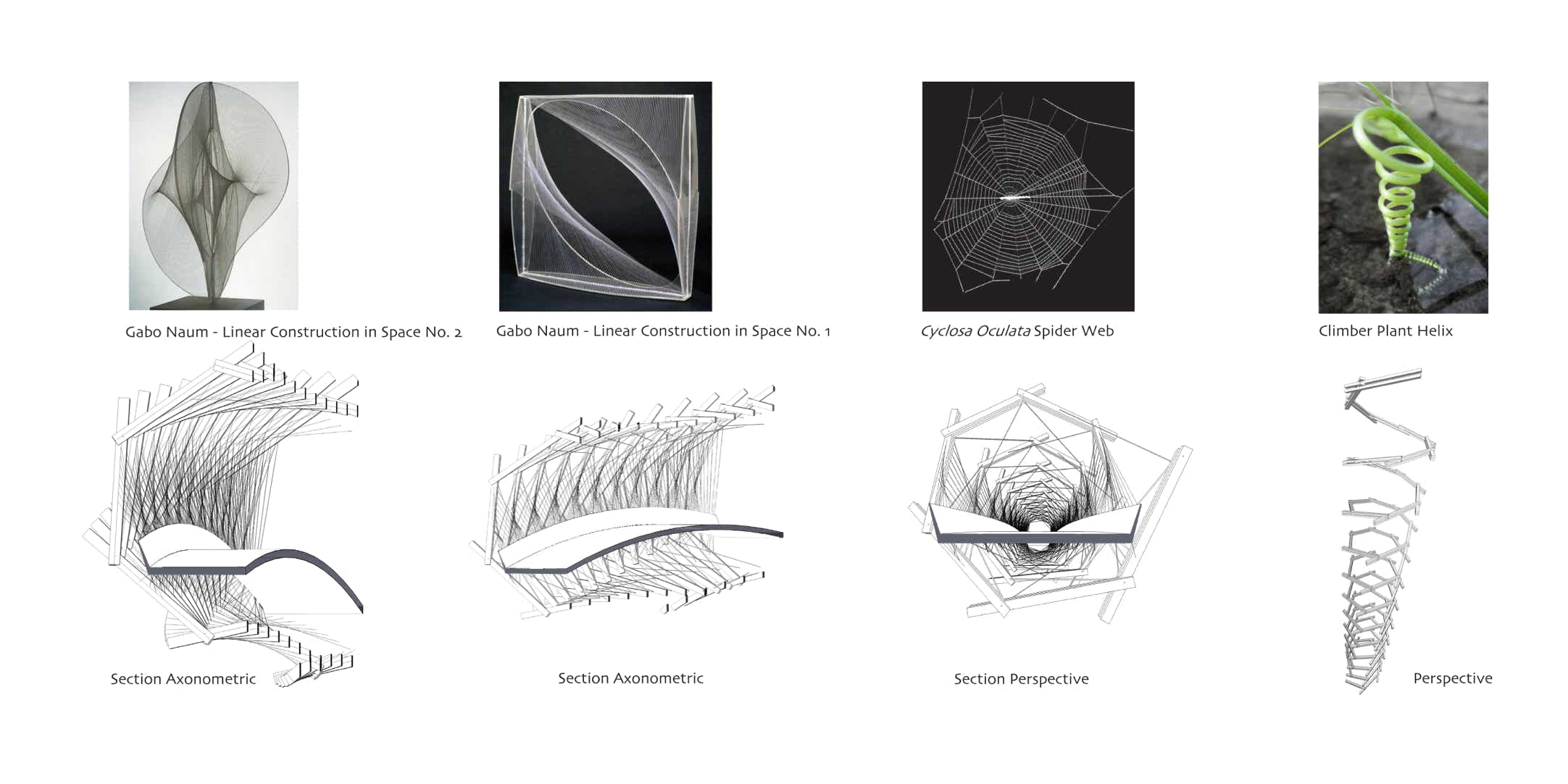RIBA Pedestrian Bridge Competition Entry 2007
This bridge creates visual rhythm through the users’ movement by using repeated elements in slightly varying positions with hierarchy. The bridge's primary structural elements are two identical box beam fastened to two steel ties. This group of four elements is repeatedly stepped and rotated in a helical pattern, completing just slightly more than on full turn per seven segments, resulting in a rigid structure that is simple, inexpensive and beautiful. Inside this helix, the bridge's deck is suspended on each side from the structural beams with a series of secondary cables that creates the required guard rail with a compelling pattern of fanning cables. Each step across the bridge affords a unique view within this varying structure. The views of the bridge are equally rewarding as it simultaneously appears iconic and creates multiple intriguing patterns as moire patterns emerge within its tendrils. This bridge will become a unique and iconic gateway to area and an delightful experience for pedestrians. It will become a part of the vision and memory of the site.
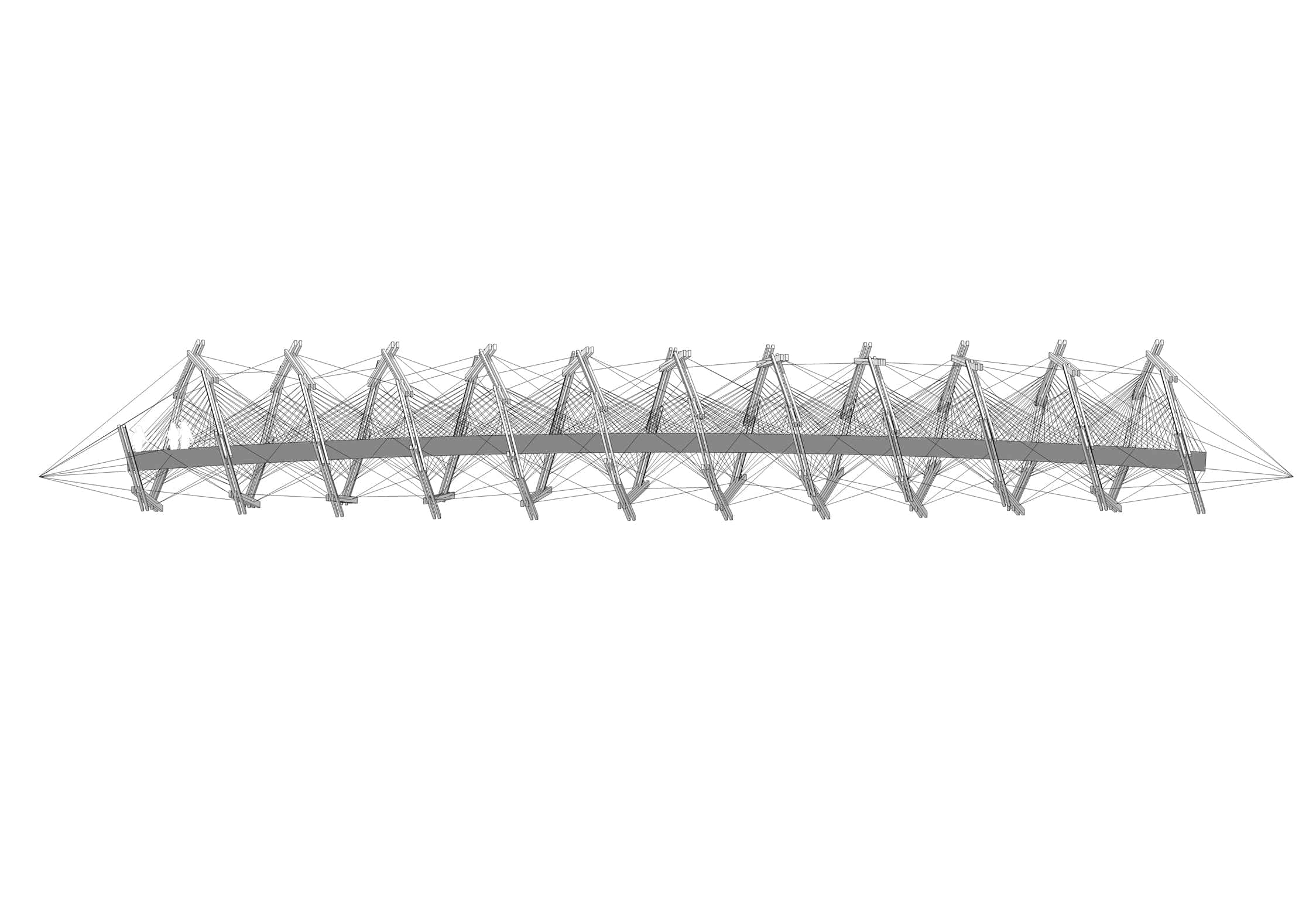

Plan
Elevation
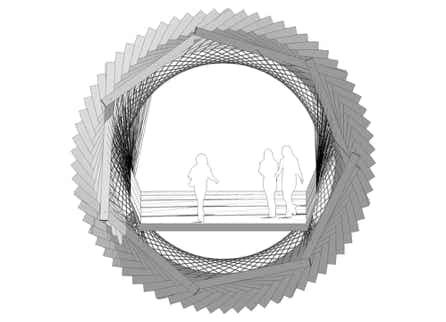
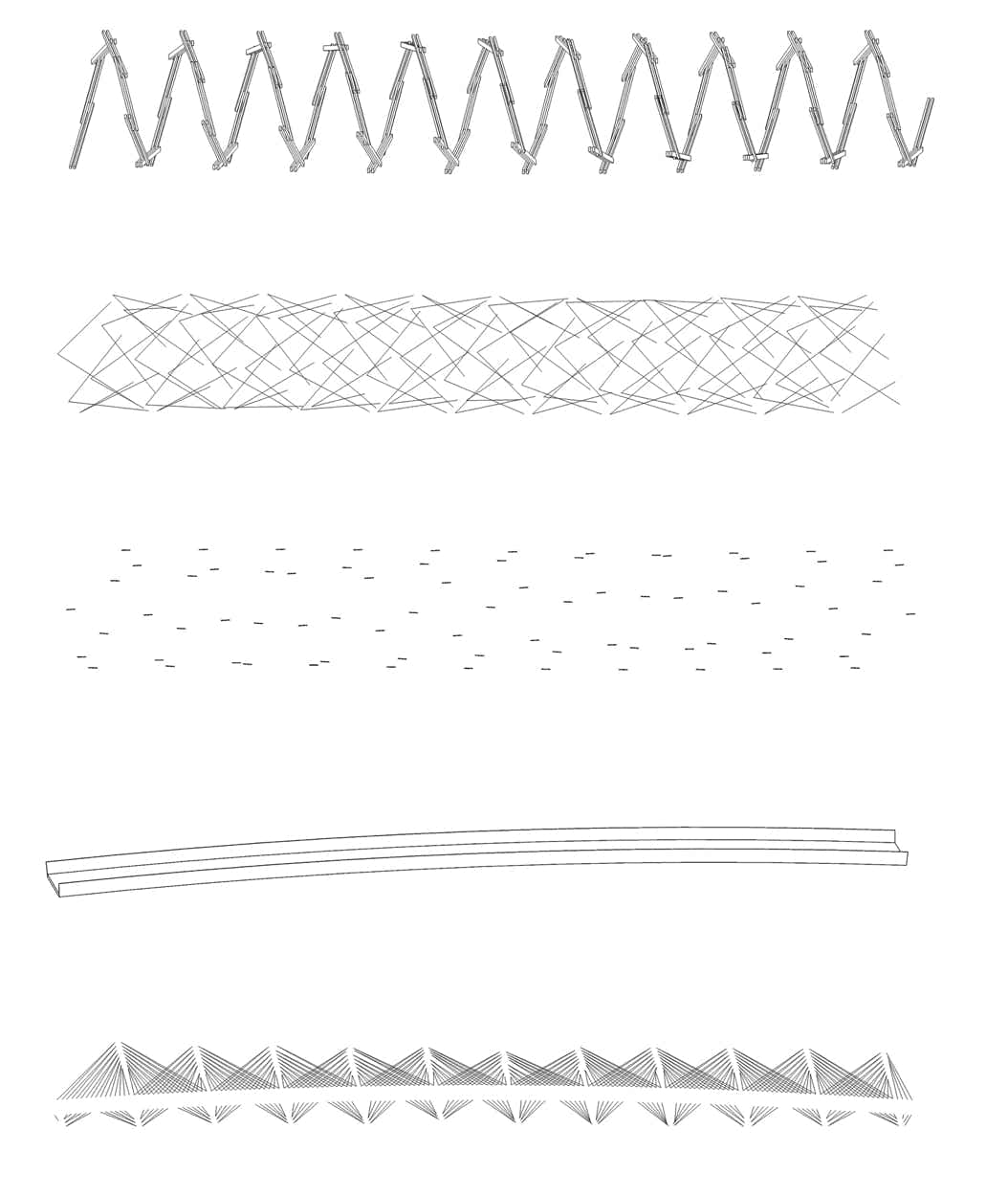
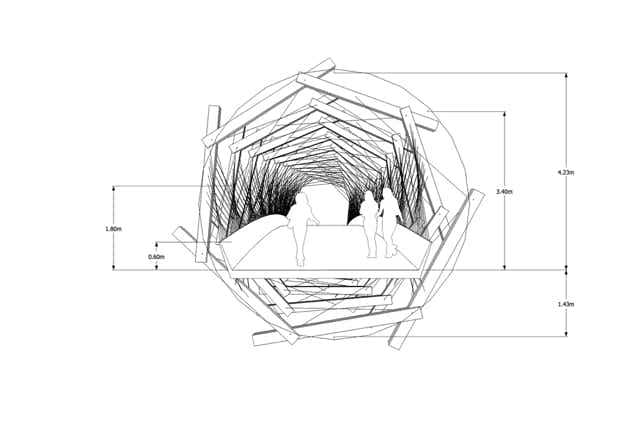
Structural beams
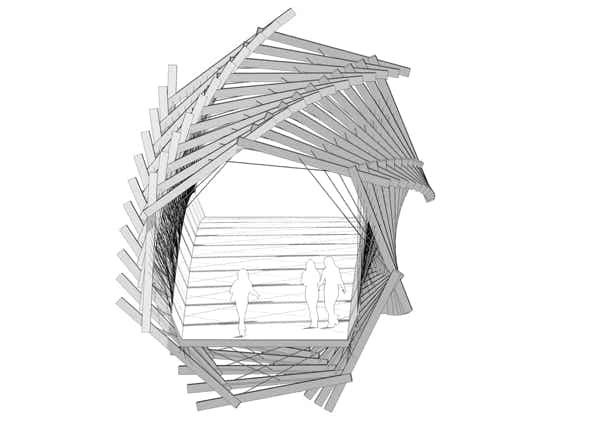
Axonometric
Stainless Steel Ties
Cross Section Perspective
Bolts and Fasteners
STRUCTURE
The structural system is unique and highly redundant. The main structural members are paired steel box beams joined by steel ties that effectively create a large diameter rigid cylinder that primarily resists bending moments. The deck resists shear forces and prevents compression between members, while its slight arch assists in transferring loads to the embankments and promotes efficient water runoff. The deck and the structural members are joined though a system of a secondary cables that creates the required guard rail and acoustically separates the deck form the bridge's structure.
Structural Deck
Guardrail and Deck Connector
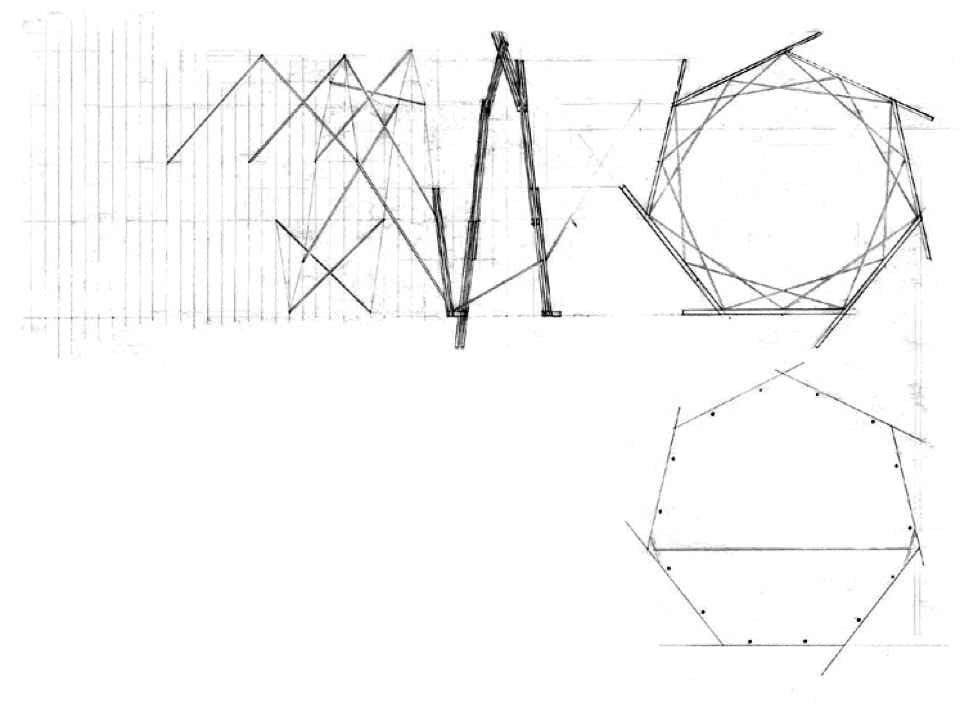
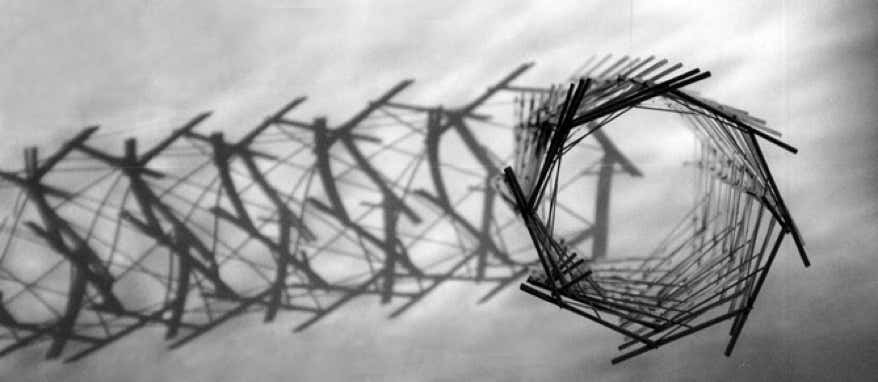
Early Sketch Showing Structural System
Structural Model
MATERIALS
On exposed surfaces, stainless steel with varying finishes is used throughout the bridge to minimize maintenance. The main structural members have a dull finish while the flanges of the deck are mirror finished, minimizing the appearance of the deck from the road. The bridge's walking surface is a resilient mat manufactured from recycled automobile tires, absorbing foot-traffic and ambient noise.
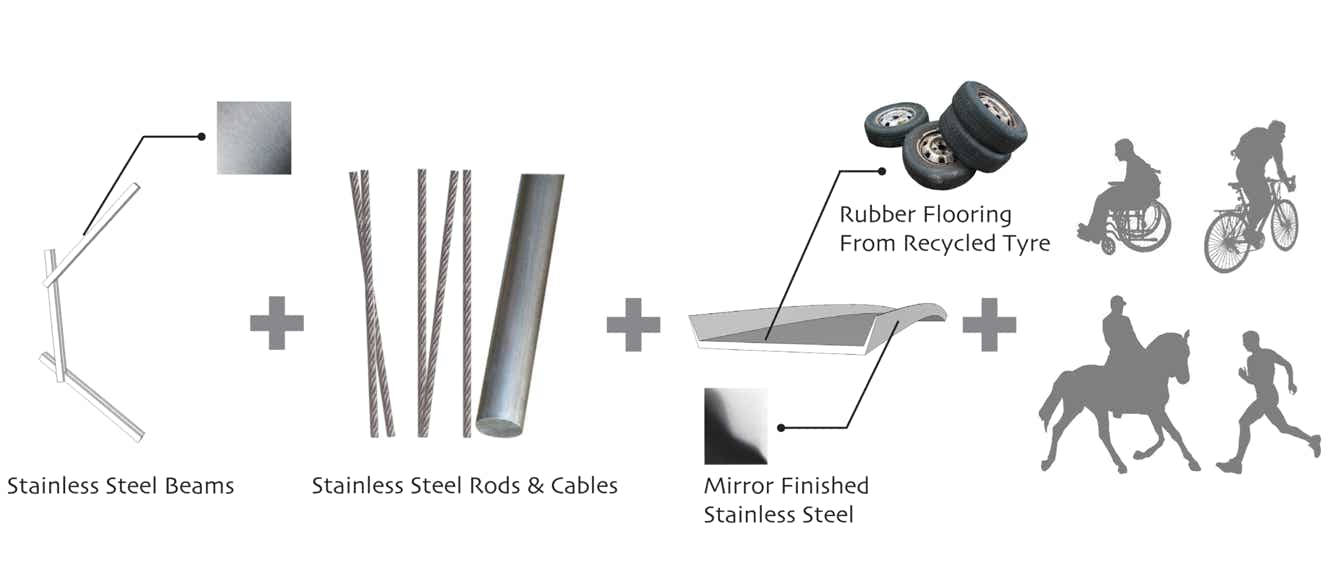
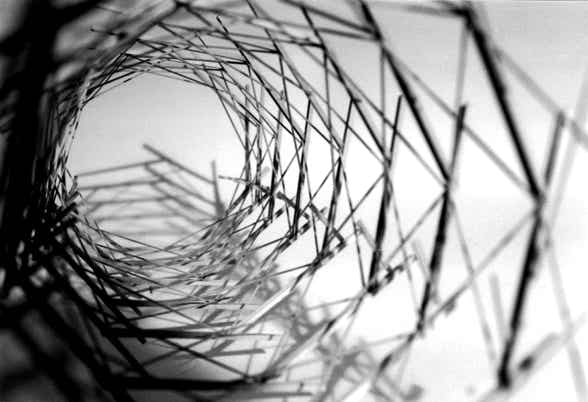
GREEN
The bridge is a light weight structure, thereby reducing the quantity of materials required for its construction. Stainless steel is used to eliminate the need for paint while recycled tires are used for a resilient deck surface. LED lighting with local solar collectors minimizes the bridges energy consumption.
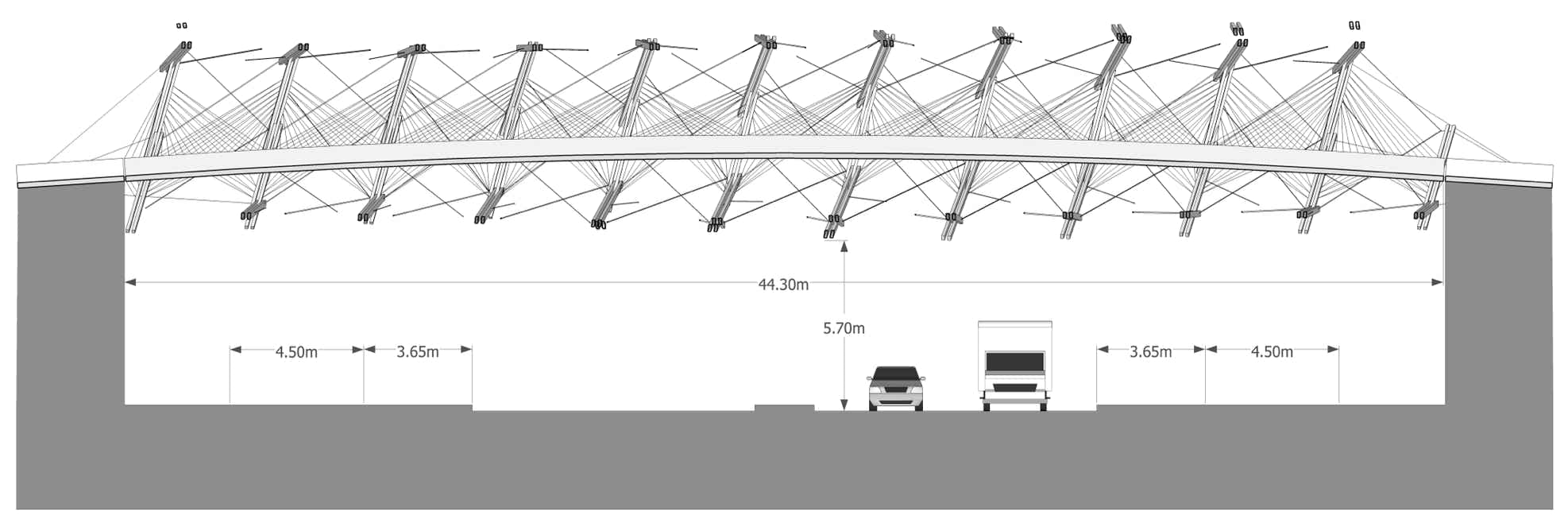
Longitudinal Section

